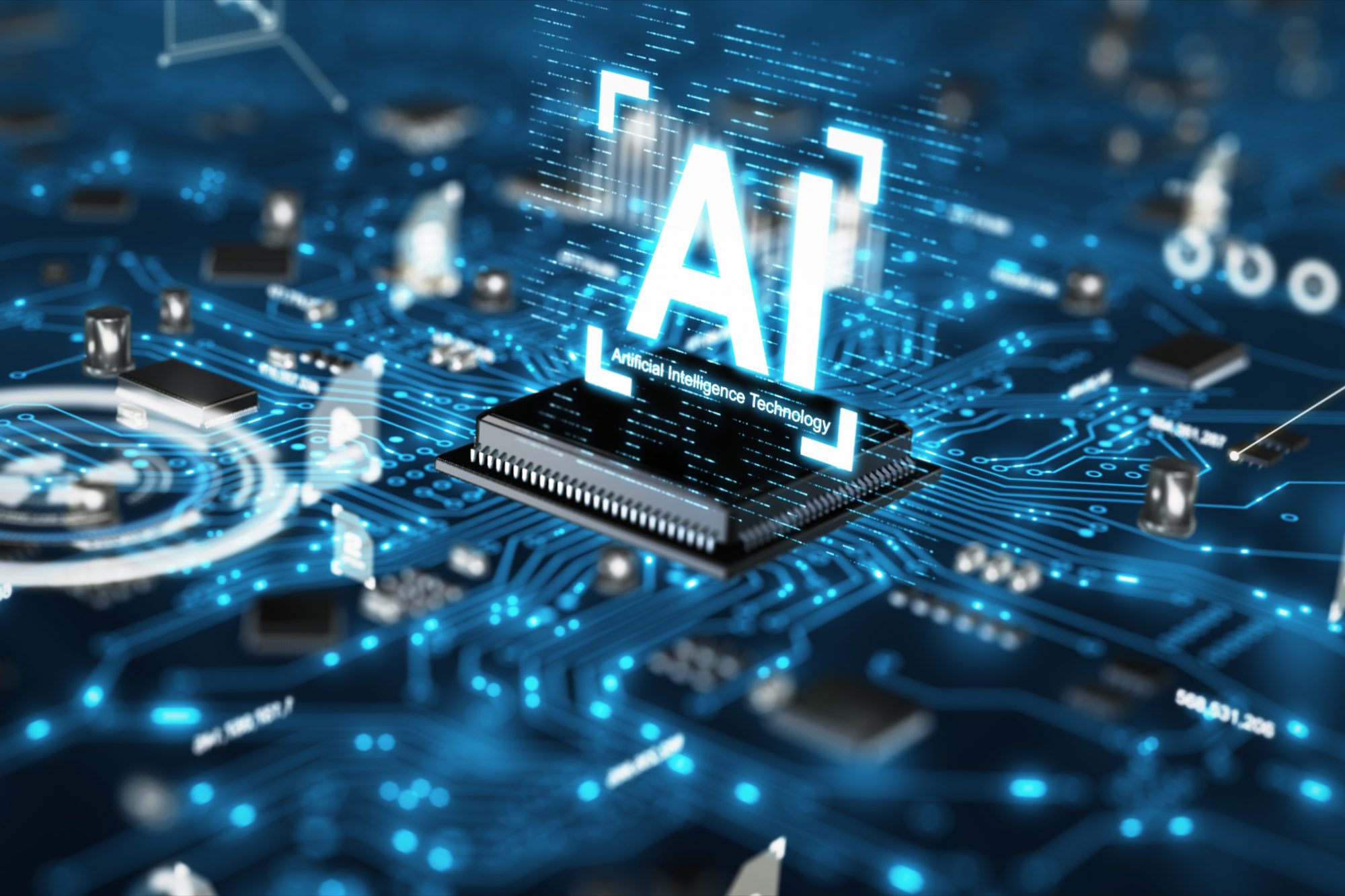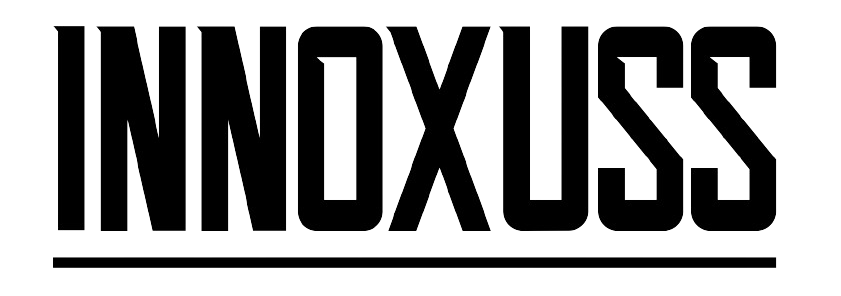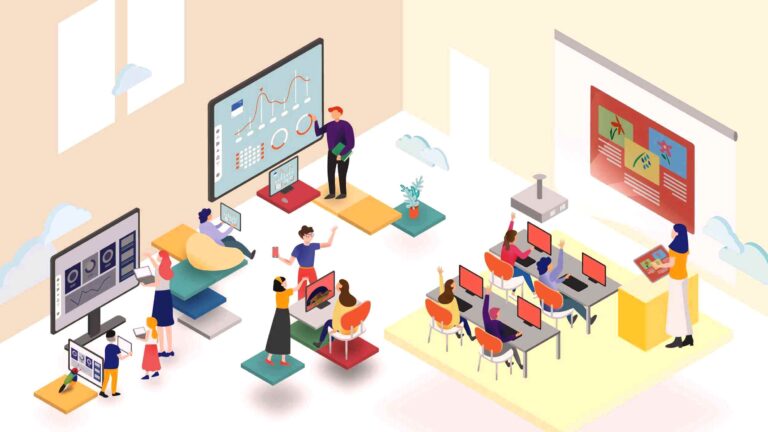Unleashing Tomorrow’s Innovators: the exciting future of Tech Education is a riveting topic that promises to shed light on how the education industry is evolving to meet the demands of a rapidly changing technological landscape. 💡
In the paragraphs to follow, we delve into the transformation of the educational paradigm, highlighting the significant role that technology plays in shaping the innovators of tomorrow. Focusing on emerging trends and strategies, this exploration reveals the impact of digital literacy, the integration of tech into curriculum, and the fostering of an innovation mindset in molding the leaders of the future. 💼
Moreover, the discussion will touch on the importance of bridging the gap between traditional education and the ever-evolving tech industry, focusing on creating a symbiotic relationship to propel the next generation towards innovation and problem-solving. The aim is to stimulate thought-provoking conversations on the subject, giving a glimpse into the thrilling future of tech education. 🚀
The Shift to Emerging Technologies
The evolution of tech education is not just about introducing students to new topics—it’s about preparing them for roles that may not even exist yet. Emerging technologies like blockchain, quantum computing, biotechnology, and cybersecurity are becoming central to various industries, prompting schools and universities to rethink curricula to include forward-looking subjects that encourage both technical competence and adaptive thinking.

Educational institutions are increasingly partnering with industry leaders to ensure that students gain relevant, up-to-date experience. For example, Google’s AI for Education, Microsoft Learn, and IBM SkillsBuild offer free or subsidized courses and certifications that align directly with market demand. These collaborations help bridge the gap between theoretical education and practical workforce readiness.
Another important shift is the incorporation of interdisciplinary approaches. As technology becomes embedded into everything from healthcare to the arts, educators are blending tech learning with subjects like biology, economics, and even ethics. Students are encouraged to view coding not just as a technical skill, but as a tool for solving real-world problems, such as climate change modeling or social justice advocacy.
In addition, project-based learning is becoming a cornerstone of modern tech education. Instead of traditional rote memorization, students are asked to build, test, and refine real-world applications. These experiences not only strengthen their understanding of complex concepts but also foster teamwork, creativity, and communication—key skills in today’s collaborative tech environments.
Democratizing Tech Education
The democratization of tech education is perhaps one of the most powerful trends of the 21st century. The idea that anyone, anywhere, with a laptop and internet connection can learn to code, analyze data, or build apps is revolutionizing global access to opportunity.
Platforms such as Coursera, edX, Khan Academy, freeCodeCamp, and Udemy have opened doors to millions who might otherwise have been excluded due to geography, income, or institutional barriers. These platforms offer everything from introductory programming courses to specialized nanodegrees in AI or cloud architecture.
Importantly, this democratization extends beyond the individual. Nonprofits and governments around the world are leveraging these platforms to upskill entire populations. In countries where traditional education infrastructure is underdeveloped, mobile-first learning platforms are proving to be game-changers, helping to address digital divides and prepare communities for participation in the global tech economy.
Moreover, companies are beginning to recognize alternative credentials as valid signals of capability. The increasing acceptance of certificates from platforms like Google Career Certificates or IBM’s Data Science Professional Certificate shows a shift away from traditional degree-centric hiring, and towards a more skills-based economy.
Inclusion is also a vital element of this democratization. Initiatives like Girls Who Code, Black Girls Code, Code.org, and Techtonica are creating supportive environments for underrepresented groups in tech. These programs not only teach technical skills but also provide mentorship, networking, and exposure to role models—key factors in building confidence and long-term participation.
Despite this progress, challenges remain. Access to devices, stable internet, and high-quality digital content is still uneven across many regions. Furthermore, language barriers and cultural relevance can affect the effectiveness of tech education programs. To truly democratize access, continued investment in localized content, infrastructure, and multilingual instruction is essential.
Ultimately, the democratization of tech education is not just about accessibility—it’s about empowerment. It’s about equipping individuals with the tools to participate in and shape the future, regardless of their background or starting point. This shift is fundamentally transforming not only who gets to innovate, but also what problems are prioritized and how solutions are developed.
Innovations in Tech Education
Along with the democratization of tech education, there has also been a surge in innovation. Teaching methods are becoming more interactive and hands-on, with a focus on problem-solving.
Virtual and Augmented Reality are being integrated into classrooms to provide immersive learning experiences. They allow students to visualize complex concepts in a more intuitive way, enhancing understanding and retention. For example, augmented reality can be used to create 3D models of complex data structures or software architecture, providing a tangible way to grasp these abstract concepts.
Gamification of Learning
Another significant trend in tech education is the gamification of learning. It involves the application of game-design elements in learning environments to increase engagement and motivation. Coding challenges, hackathons, and tech competitions are some examples of this approach. They provide a fun, competitive environment for students to apply their knowledge and solve real-world problems.
The Role of Artificial Intelligence
Artificial Intelligence (AI) is not just a subject being taught in tech education; it’s also transforming the way education is delivered. AI-powered systems can personalize learning paths based on individual student’s strengths, weaknesses, and pace of learning. This adaptive learning approach can significantly enhance the effectiveness of tech education.

AI Tutors
AI tutors are another innovation in tech education. They are capable of providing instant feedback, clarifying doubts, and assisting with homework. AI tutors are available 24/7 and can provide tailored guidance to each student, making learning more efficient and flexible.
Preparing for the Future
As we move into a future dominated by technology, the role of education must expand beyond the mere transmission of technical know-how. Preparing students for this landscape requires a holistic educational approach—one that not only imparts digital skills, but also cultivates the mindset necessary to thrive in a fast-changing, innovation-driven world.
The future of tech work will increasingly demand creativity, adaptability, and interdisciplinary thinking. Employers are seeking individuals who can do more than just write code or operate machines—they want thinkers who can imagine new solutions, question the status quo, and collaborate across functions and cultures. Thus, fostering soft skills such as communication, collaboration, emotional intelligence, and cultural awareness is becoming just as important as teaching programming languages or software proficiency.
To meet this challenge, many forward-thinking educational institutions are redesigning their curricula. Project-based learning, design thinking workshops, and interdisciplinary innovation labs are becoming central features of modern tech education. These initiatives give students the chance to work on real-world problems, often in teams, encouraging them to think critically and creatively while navigating ambiguity and feedback—an environment that mirrors the tech industry itself.
Another key focus is instilling an innovation mindset early on. This involves teaching students to experiment, embrace failure as a stepping stone, and iterate toward better solutions. Educators are encouraging students to approach challenges with curiosity and resilience, two traits essential for anyone hoping to lead in tomorrow’s tech ecosystem.
Moreover, educators are working to integrate ethics, digital responsibility, and social impact into the tech curriculum. As emerging technologies raise complex questions about privacy, bias, misinformation, and sustainability, it’s vital that the next generation of tech leaders is not only skilled, but also conscious of the broader implications of their innovations. Responsible innovation will be a defining factor of tomorrow’s tech landscape.
Lifelong Learning
In the dynamic world of technology, where tools and platforms evolve rapidly, learning cannot stop at graduation. Lifelong learning is no longer optional—it is essential. Professionals must continually evolve their skills to stay relevant, competitive, and innovative in the face of rapid digital transformation.
Thankfully, the infrastructure for lifelong learning has never been stronger. A wide array of flexible, modular learning pathways is now available to accommodate professionals at all stages of their careers. From part-time certifications and online bootcamps to micro-credentials and nano degrees, tech education has adapted to the needs of adult learners who may be balancing careers, families, and other commitments.
Employers are also playing a growing role in supporting lifelong learning. Many forward-thinking companies are investing in internal learning platforms, upskilling programs, and reskilling initiatives to ensure their workforce remains future-ready. Tech giants like Amazon, Google, and IBM have launched their own educational programs to close skill gaps not only within their organizations but across industries.
Moreover, community-driven learning has become a powerful component of ongoing education. Platforms like GitHub, Stack Overflow, Reddit, and Discord communities enable professionals to learn collaboratively, share best practices, contribute to open-source projects, and stay informed on the latest trends. Learning is no longer confined to classrooms or textbooks—it is happening in forums, podcasts, newsletters, and peer-led digital spaces.
Importantly, lifelong learning isn’t just about keeping up—it’s about exploring new possibilities. With the right mindset and tools, mid-career professionals can pivot into emerging fields like AI, cybersecurity, data science, or UX design. Career reinvention, once rare and risky, is now increasingly common—and necessary.
Educational providers are recognizing the importance of this shift and designing programs specifically for career changers and upskillers, with mentorship, career guidance, and portfolio development included in their offerings. Platforms like CareerFoundry, Springboard, and General Assembly are great examples of this learner-focused approach.
Another critical component is learning how to learn. In a world of constant innovation, developing meta-skills—like self-motivation, time management, and digital fluency—will help learners stay adaptable and continuously engaged. Encouraging curiosity, independence, and confidence is key to making lifelong learning a fulfilling and empowering experience.
As technology becomes even more integrated into our daily lives, tech literacy will no longer be a specialization—it will be a foundational skill, much like reading or arithmetic. Everyone, from students to seasoned professionals, will benefit from maintaining a growth mindset and proactively seeking knowledge throughout life.
In summary, preparing for the future of tech education involves more than mastering current technologies—it requires cultivating adaptable, curious, and ethically grounded individuals who can drive innovation and navigate complexity. Simultaneously, lifelong learning ensures that these qualities don’t stop developing after formal education ends but continue to evolve with every new challenge and opportunity that the digital world presents.
Conclusion
In conclusion, “Unleashing Tomorrow’s Innovators: Exploring the Exciting Future of Tech Education” delineates the remarkable prospects of the ever-evolving tech education. As we move towards a more digitized future, the call for skilled tech professionals is escalating, thereby reinforcing the need for a robust tech education. These advancements are not only reshaping the traditional education system but also providing a platform for learners to unleash their potential, thus driving innovation. However, it is pivotal to keep in mind that the future of tech education lies in a balanced approach, one that integrates practical skills with theoretical knowledge. In an age where technology is ubiquitous, ensuring accessibility and inclusivity in tech education is also of paramount importance.
On a final note, tech education is not just about preparing students for future jobs, but it’s about equipping them with skills to create and innovate, potentially leading to groundbreaking technologies that could reshape our world. With tech education at the forefront, we can expect a future where innovation thrives, and dreamers become doers.
Additionally, fostering a culture of lifelong learning and curiosity will be essential for success in this constantly evolving landscape. Educational institutions, governments, and the private sector must work in unison to create adaptive learning ecosystems that not only respond to current industry needs but also anticipate future demands.
By embracing emerging tools such as AI tutors, virtual labs, and immersive simulations, educators can offer richer, more engaging learning experiences that resonate with tech-savvy generations. The democratization of access to tech education will ensure that opportunity is no longer confined to geography or socioeconomic status, but extended to anyone with the passion to learn.
Tech education is not simply a path to employment—it is a catalyst for empowerment, equity, and global progress.




